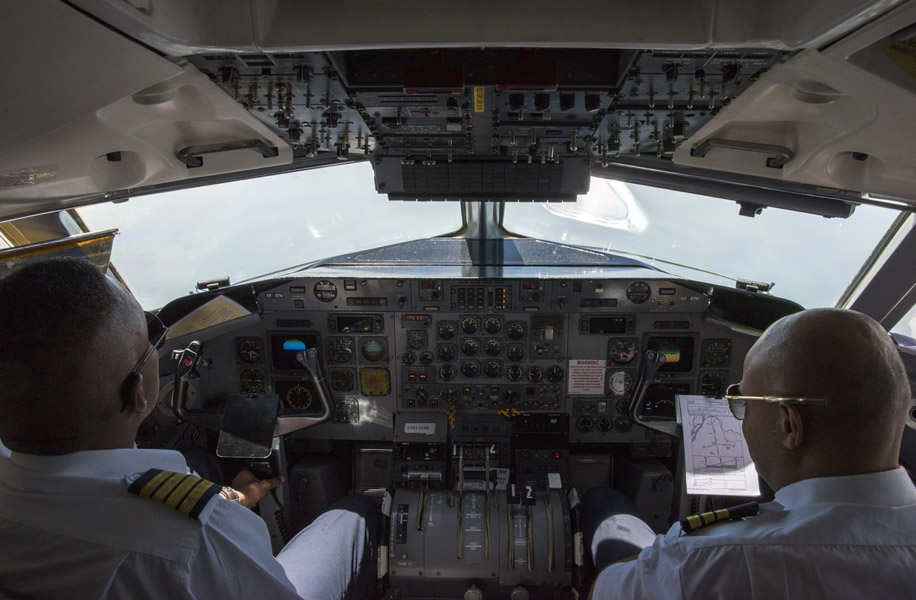Joint Statement on prioritization of COVID−19 vaccination for seafarers and aircrew

WHO, along with partners, is asking for seafarers and aircrew to be considered as ‘essential workers’ and to be prioritized for vaccination along with others in that group.
Maritime and air transport are two central activities to global trade and mobility, and play a vital role in global supply chains and the provision of humanitarian aid. They also play a key role in global socioeconomic recovery. It is estimated that 400 000 seafarers are currently stranded on board commercial vehicles, unable to be repatriated, while a similar number are unable to join the ships to replace them.
National governments will determine which populations should be prioritized for vaccination, based on supplies and their epidemiological situation. In November 2020, WHO issued the SAGE Prioritization Roadmap to guide countries in this decision- making. According to the roadmap, essential workers outside health and education sectors should be considered for vaccination when there is moderate vaccine availability, enough for 21-50% of the population.
By International Civil Aviation Organization (ICAO), International Labour Organization (ILO), International Maritime Organization (IMO), International Organization for Migration (IOM) and World Health Organization (WHO)
The coronavirus (COVID-19) pandemic has triggered devastating consequences for human life and the global economy. Maritime and air transport are two essential activities that underpin global trade and mobility and are key to a sustainable socio-economic recovery.
More than 80% of global trade by volume is moved by maritime transport. The global economy depends on the world’s 2 million seafarers who operate the global fleet of merchant ships. Seafarers have been severely impacted by the travel restrictions imposed during the pandemic. As of January 2021, it is estimated that some 400,000 seafarers are stranded on board commercial vessels, long past the expiry of their contracts and unable to be repatriated. A similar number of seafarers urgently need to join ships to replace them.
Passenger air transport carried about 5.7 billion passengers in 2019 while airfreight represents 35% of the value of goods shipped in all modes combined. The total number of licensed aviation professionals, which include pilots, air traffic controllers and licensed maintenance technicians, was 887,000 in 2019, according to ICAO personnel statistics. Application of stringent public health rules to air crew, including quarantine, has resulted in hindered connectivity, operational complexity and significant cost.
Maritime and air transport rely on seafarers and aircrew. They are key workers required to travel across borders at all times, which may result in the need for them to present proof of a COVID-19 vaccination as a condition for entry in some countries. This is despite WHO recommendation that, at the present time, countries should not introduce requirements of proof of vaccination for international travel as a condition of entry, as there are still critical unknowns regarding the efficacy of vaccination in reducing transmission and limited availability of vaccines1. For shipping and air transport to continue to operate safely, the safe cross border movement of seafarers and aircrew must be facilitated. We reiterate our call upon countries that have not done so to designate seafarers and aircrew as key workers.
With this statement, our organizations also call on governments to prioritize seafarers and aircrew in their national COVID-19 vaccination programmes, together with other essential workers, in accordance with the advice from the WHO SAGE Roadmap for prioritizing the use of COVID-19 vaccines in the context of limited supply published in November 20202. Seafarers and aircrew need to be protected through vaccination as soon as possible, to facilitate their safe movement across borders. We also call on governments to identify and prepare for the challenges of COVID-19 vaccination of seafarers and aircrew, particularly for seafarers spending long periods of time away from their home country.
Our organizations fully support the timely development of an international harmonized framework for vaccination certificates, to facilitate international travel for seafarers and aircrew.
In December 2020, WHO established a Smart Vaccination Certificate working group to ensure that digitalized versions of vaccine certificates are interoperable3, and the UN Crisis Management Team for COVID-19, under the leadership of WHO, recognized that all countries should consider seafarers and aircrew, who are required to travel across borders during the pandemic, for essential allocation of vaccines.
We invite governments and other stakeholders to bring the contents of this joint statement to the attention of the competent authorities and all parties concerned.
1 Statement on the sixth meeting of the International Health Regulations (2005) Emergency Committee regarding the coronavirus disease (COVID-19) pandemic
2 WHO SAGE Roadmap For Prioritizing Uses Of COVID-19 Vaccines In The Context Of Limited Supply





